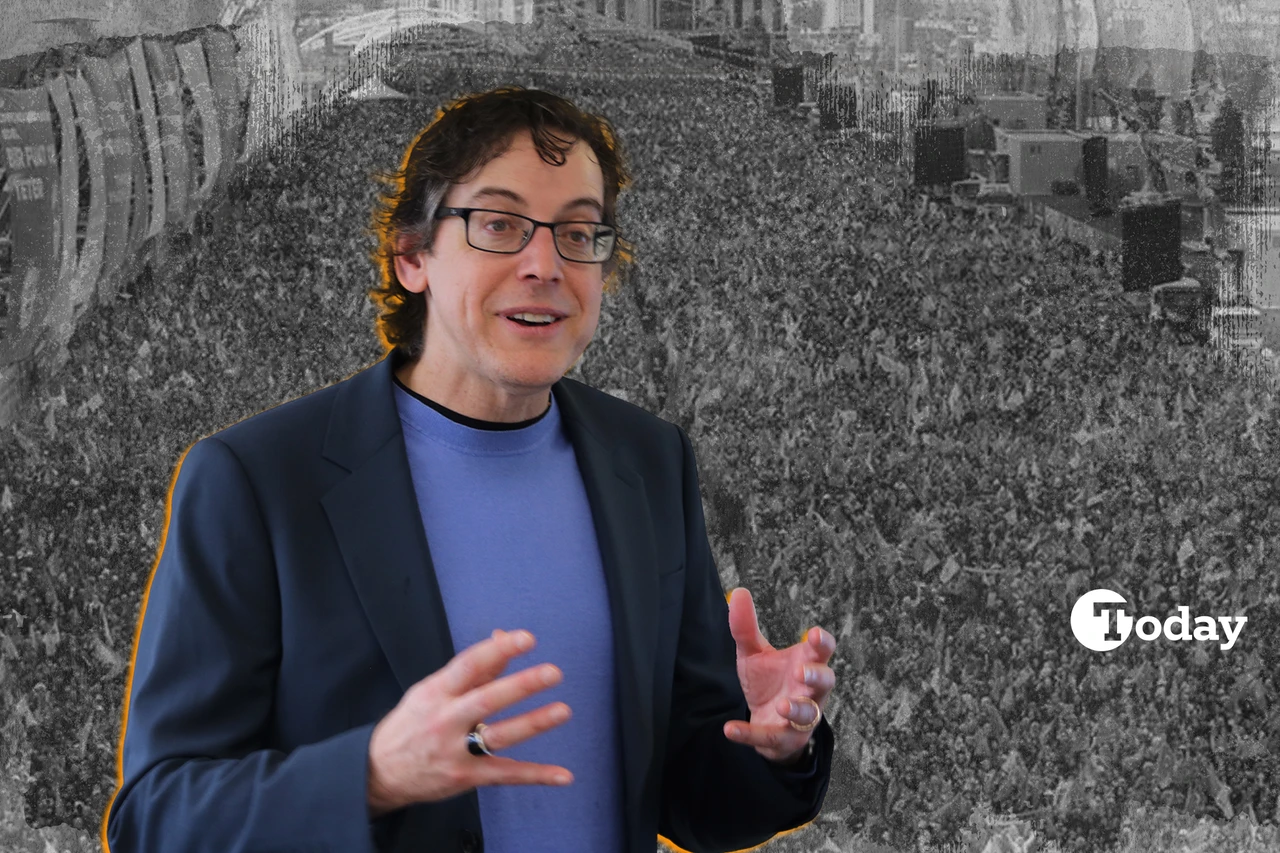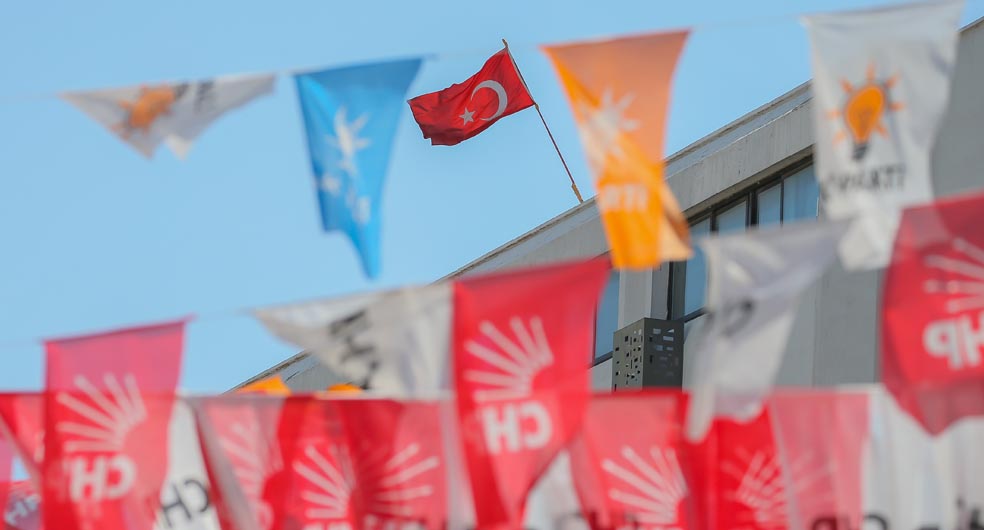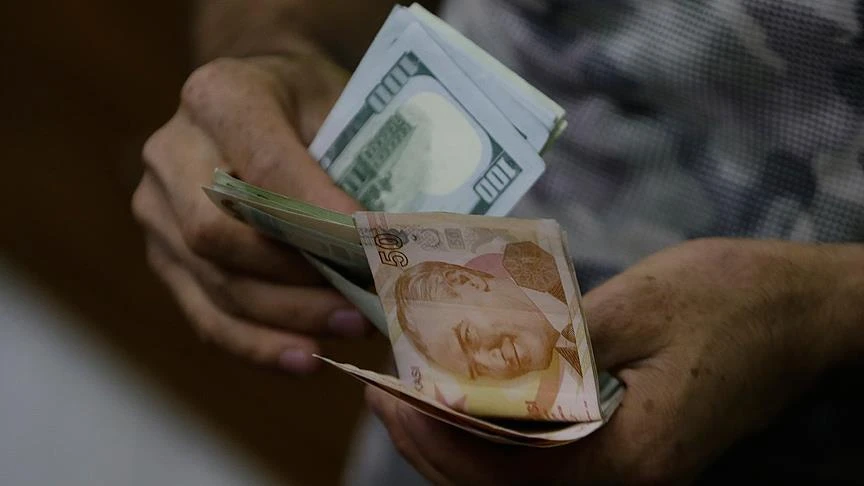Exclusive: Dan Slater on Türkiye, Gulf and Americas—paradoxes of authoritarianism, democratization
 Dan Slater on the front (Collage prepared by Türkiye Today team)
Dan Slater on the front (Collage prepared by Türkiye Today team)
Professor Dan Slater, director of the Center for Emerging Democracies at the University of Michigan and a globally renowned authority on authoritarianism and democratization, provided an in-depth analysis of the evolving political dynamics in Türkiye, the Gulf and the Americas.
In an exclusive interview with Türkiye Today, Slater examined the interconnected roles of economic development, civil society and political reform, drawing on both historical lessons and contemporary realities.
It is interesting to consider that autocracy and democracy each have their own unique pathways for transitioning from one to the other. Ironically, there are moments of opportunity for authoritarian regimes to adopt democratic practices strategically, and vice versa. The two systems contain many such complexities, as Dan Slater explains.
Gulf: Strategic reform or missed opportunities
Starting with a great case study for democracy, the professor spoke about the recent referendum in Qatar, where citizens voted to abolish their right to elect members of the Shura Council, as an example of the current trends in the Gulf.
“What we’re seeing now is authoritarian leaders feeling less compelled to engage in electoral or power-sharing games. They no longer see the need for voluntary, strategic democratic reforms as they might have a decade ago.”
Slater contrasted this with the democratic momentum during the Arab Spring, emphasizing that today’s “low watermark” for democratic reforms reflects a global surge in authoritarian confidence, exemplified by leaders like U.S. President-elect Donald Trump or Russia’s President Vladimir Putin.
Despite the odds, Slater stressed that the best time for reform is when regimes are strong, as delaying reforms can lead to collapse or violent conflict, citing the examples of Syria, Egypt, and Tunisia.
“The best time to reform is when you are strong. If you wait until you’re weak you wind up like Syria or Tunisia where these regimes just collapsed or had to fight the nastiest Civil War of the 21st century in order to stay in power.”
He expressed hope that the leaders recognize this and consider democratic transitions as a proactive, stabilizing strategy rather than a reactive necessity. Ironically, authoritarian regimes, often challenged by unified opposition due to their autocratic nature, can sometimes benefit from democratic moves which when implemented strategically, can fragment opposition and consolidate power.
Singapore’s history is a good example for this point, but for more also. Authoritarian regimes with strong economic track records often have the potential to translate their success into electoral support if they choose to democratize. He noted that in Gulf states like Qatar, the UAE and Saudi Arabia, the current ruling elites could likely maintain power through popular elections, given their ability to leverage economic achievements and public approval, drawing parallels to East Asian country’s ruling party.
There are many examples of missed opportunities also. The professor addressed China’s failure to democratize in 1989, noting, “The Chinese Communist Party didn’t democratize not because it was ‘too strong to collapse,’ but because it was ‘too weak to concede.’ Unlike its neighbors—Japan, Taiwan, and South Korea—China lacked the confidence to transition democratically while maintaining power.”
Dan Slater on Türkiye’s journey
Turning to Türkiye, Slater described it as a country where democracy and authoritarianism coexist in a tug-of-war. He highlighted Türkiye’s historical trajectory, calling it “democracy through strength.” He noted that the military traditionally acted as a stabilizing force that safeguarded secularism while gradually sharing power with conservative, business-aligned elites capable of winning elections.
The professor introduced the concepts of “stability confidence” and “victory confidence” to explain the dynamics at play. Stability confidence refers to a regime’s belief that democratic elections will not destabilize the nation’s foundational structures, while victory confidence reflects the ruling elite’s confidence in their ability to win elections.
In Türkiye’s case, the military historically relied on stability confidence, opting to allow pro-military actors to govern on their behalf rather than ruling directly. However, Slater noted that the 2016 coup attempt marked a turning point, allowing President Recep Tayyip Erdogan to reshape the military into an institution less inclined to act as a check on electoral politics.
He contrasted Türkiye’s trajectory with Thailand and Myanmar, where the military has consistently struggled to create stable political alliances or viable conservative parties to compete with progressive movements. In Türkiye, by contrast, the electoral path remains central, with elections deciding who governs—a factor Slater sees as broadly positive for democracy. However, he cautioned that the real challenge now lies in fostering political competition and enabling power transition, given Erdogan’s two-decade rule, which he argued is rarely healthy for a democracy.
He also pointed out the parallels between Türkiye and other nations navigating shifts in power dynamics. He compared Türkiye’s military’s adjustment to the rise of the ruling Justice and Development Party (AK Party) with Argentina’s military coming to terms with Peronism, underscoring how entrenched power structures negotiate with emerging political forces advocating for alternative visions of governance, and where it leads.

Americas: Inequality and populism
From Argentina to the U.S., in the Americas, Slater identified inequality as a central issue shaping political developments. From the rise of leftist movements in Latin America to the populist appeal of leaders like Jair Bolsonaro and Trump, economic disparities and cultural grievances continue to fuel political polarization.
He explained that in deeply unequal societies, leftist movements often emerge as a corrective force, challenging entrenched elites and seeking to redistribute wealth and power. However, these efforts frequently face resistance from the military, which frequently maintains ties with economic elites—particularly in regions like Central America, where militaries have historically aligned with wealthy interests.
Slater cited Brazil’s Workers’ Party as an example of a leftist movement that brought significant social and political change, despite facing corruption scandals and backlash. He contrasted this with Venezuela’s descent into authoritarianism, noting how the failure to balance reform and stability can lead to democratic collapse, pushing opposing factions into a deadlock with no room for dialogue. He discussed the root causes of these divides, noting that inequality in the Americas is both an economic and political issue. “Until societies address the disparities fueling discontent, democracy will remain under constant strain,” Slater said.
In the United States, he expressed cautious optimism, acknowledging the resilience of its democratic institutions while warning about the dangers of polarization. He emphasized that addressing economic inequality is critical to reducing the political and cultural divides threatening democracy in both the U.S. and Latin America.
Europe’s economic model
Discussing Europe, Slater highlighted the region’s shift from its historical trajectory of economic development preceding democratization—consistent with its 19th-century history—to its current status as a collection of wealthy, “post-development” societies. He argued that Europe now faces challenges tied to sustaining economic growth amid demographic decline, relying heavily on immigration to fill workforce gaps. However, this reliance has fueled significant backlash, driving the rise of far-right movements rooted in xenophobia and nativism.
Slater emphasized that immigration itself is not the root problem but is instead entangled with broader economic struggles, particularly in rural and deindustrialized regions, where economic stagnation creates fertile ground for far-right appeals. He contrasted this with nations in Asia, such as Japan, South Korea, and Taiwan, which have successfully addressed economic challenges, enabling them to maintain stable democracies without similar backlash. “When you can’t solve the problems of the economy,” Slater concluded, “you’re going to have problems for democracy.”
Lessons for future
Democracy is not a Western phenomenon, as exemplified by Japan, Taiwan, and Indonesia. Slater argues that from the Gulf to Europe, and even in South Korea, which has recently faced struggles in its democratic process, the timing and strategy of reforms are crucial. These factors determine whether regimes strengthen their legitimacy or risk collapse.
South Korea’s history serves as a relevant example today. Drawing on his expertise in Asia, Slater highlighted South Korea as a case where military leaders embraced democracy from a position of strength. “This approach, which we term ‘democracy through strength,’ has produced some of the world’s most resilient democracies,” he said.
From economic strength to democracy, social issues to social contract, Dan Slater’s theoretical framework provides a more nuanced way to approach governing. Slater’s reflections highlight a universal truth: democracy is a dynamic and ongoing process, not confined to any one region or historical pathway. The timing and strategy of reforms, coupled with a commitment to addressing societal inequalities, remain critical in shaping stable and sustainable governance.
Slater’s insights remind us that the resilience of governance—democratic or otherwise—depends on its ability to adapt, innovate and respond to the evolving needs of its people.



